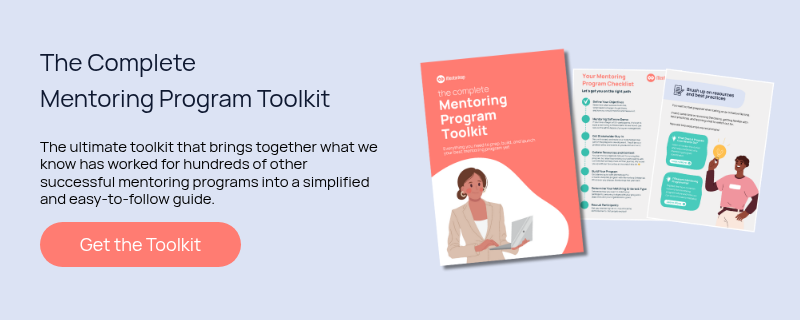Self-confidence is something we all aspire to have, but it’s not always easy to attain. Perhaps you feel like confidence is just not something you were born with, or maybe you’re someone who has lost confidence over time due to various life circumstances. The good news is that confidence is not a personality trait that we’re either born with or without; it’s a skill that can be acquired with practice and effort.
What is Self-Confidence?
Before getting into how to develop confidence, let’s first define what confidence actually means.
At its core, self-confidence is a belief in oneself and one’s abilities. This belief can have a powerful impact on our actions and the results we achieve in life. When we have confidence, we’re more likely to go after what we want, take on new challenges, and ultimately succeed in our endeavors. But when we lack confidence, we may hold back, doubt ourselves, and miss out on opportunities.
Self-confidence is not something that you are born with, it is something that you can learn and develop over time. It is important to understand that confidence is not the same as arrogance or overconfidence. Confidence is a healthy belief in oneself, while arrogance is an overinflated sense of self-importance that can lead to negative consequences.
Developing confidence starts with understanding and accepting who you are as a person. This means recognizing your strengths and weaknesses and being comfortable with both. When you accept yourself for who you are, you can start to build on your strengths and work on improving your weaknesses.
Another important aspect of developing confidence is setting realistic goals for yourself. When you set achievable goals and work towards them, you build a sense of accomplishment and self-worth. This, in turn, helps to boost your confidence and motivates you to continue working towards your goals.
A crucial ingredient is surrounding yourself with positive and supportive people. When you have a strong support system, you are more likely to feel confident and motivated to pursue your goals. On the other hand, negative people can drain your energy and bring you down, which can have a negative impact on your confidence.
Be gentle with yourself – remember that developing confidence is a process that takes time and effort. It’s okay to make mistakes and experience setbacks along the way. The important thing is to keep moving forward and to continue working on building your confidence.
How to Build Up Your Self-Confidence
It’s important to remember that confidence is not something we’re necessarily born with, but rather something that is learned and developed over time. But building confidence is not always easy, especially when we’re in a challenging environment that may be working against us. For example, if you’re working in a job where you constantly feel undervalued, it can be difficult to develop confidence in your abilities. It’s also difficult if you’ve struggled with self-doubt in the past. If you are looking to boost your confidence, here are some tips to help you get started.
Identify Your Areas of Weakness
The first step in building up your confidence is to identify the areas in which you currently lack confidence. This could be anything from public speaking to social situations to trying new things. Once you have identified your areas of weakness, you can start taking action to address them.
Focus On Your Strengths
One way to start building confidence is to focus on your strengths. Make a list of the things you’re good at and the accomplishments you’re proud of. This can help shift your focus away from your perceived weaknesses and onto your abilities.
Face and Overcome Challenges
One common way to develop confidence is through facing and overcoming challenges. By stepping out of your comfort zone and trying something new, even if it’s uncomfortable, you can start to build confidence in your ability to handle difficult situations. For example, if you struggle with public speaking, you could join a public speaking group or take a class to improve your skills. The more you practice, the more confident you will become.
Try to take some risks and step outside of your comfort zone. One way to make risk-taking easier is to break down larger goals into smaller, more manageable steps. Set small, achievable goals for yourself. By taking incremental action towards a larger goal, you can build momentum and confidence along the way. Additionally, focusing on the potential rewards of taking a risk, rather than the potential downsides, can help shift your mindset and make it easier to take that leap of faith.
Success breeds confidence, so accomplishing even small tasks can help build your self-assurance. And remember to celebrate your successes, no matter how small they may seem.
Practice and Master a Skill
Another key factor in developing confidence is practising and mastering a particular skill. When you become proficient in something, you naturally feel more confident in your abilities. This could be anything from playing an instrument to learning a new language to mastering a sport. Whatever skill you choose to focus on, make sure it is something that you enjoy and are passionate about.
Use Positive Self-Talk
One specific tactic that can be helpful in developing confidence is positive self-talk because the way you talk to yourself can greatly impact your beliefs and actions. By changing the way you talk to yourself, you can start to change the way you feel about yourself.
Intentionally focus on positive thoughts and beliefs about yourself. For example, instead of telling yourself that you’re not good enough or you can’t do something, try reframing those thoughts into more positive and empowering statements. This shift in mindset can have a powerful impact on how you feel and how you approach challenges.
By focusing on your strengths, reframing negative thoughts, and visualizing success, you can build a more positive and confident mindset.
Surround Yourself With Support
If you’re feeling stuck in a challenging environment, it may be helpful to seek out a mentor or coach who can provide guidance and support. They can help you identify your strengths and weaknesses and create a plan for building confidence and achieving your goals.
Surrounding yourself with supportive and encouraging people can also help boost your confidence. Seek out friends, family members, or colleagues who believe in you and your abilities. Their support can help you stay motivated and focused on your goals.
Overcoming the Fear of Rejection
Fear of rejection is a common roadblock to building confidence, particularly when it comes to putting oneself out there in social or professional situations. To overcome this fear, it can be helpful to reframe rejection not as a reflection of your worth or abilities, but as a natural part of life that everyone experiences. It’s also important to remember that one rejection does not define your entire self-worth or future potential.
Remember, building up your confidence takes time and effort. Be patient with yourself and celebrate your successes along the way. With practice and perseverance, you can become more confident and achieve your goals.
Why Confidence is Key to Success
Confidence is not just a feeling, it is a state of mind that can make all the difference in achieving success. It is the foundation upon which we build our dreams and aspirations. Confidence allows us to take risks and push ourselves to achieve our goals – no matter how daunting they may seem.
When we have confidence in ourselves and our abilities, we are more likely to attract positive experiences and opportunities. This is because confident individuals exude an aura of self-assurance that is attractive to others. People are drawn to those who are confident, and this can lead to greater networking opportunities, career advancements, and personal relationships.
Confidence also enables us to handle failure and setbacks with grace and resilience. Confident individuals recognize that failure is not a reflection of their self-worth, but rather an opportunity to learn and grow. They are more likely to bounce back from failure and try again, armed with the knowledge gained from their previous experience. This ability to persevere in the face of adversity is a hallmark of successful individuals.
Failure goes hand-in-hand with success – and having confidence ensures we can overcome failure, faster.
Confidence is not innate; it can be developed and nurtured over time. One way to build confidence is to focus on our strengths and accomplishments. By celebrating our successes, we can cultivate a sense of pride and self-assurance that can translate into other areas of our lives. Additionally, seeking out new challenges and stepping outside of our comfort zones can help us build confidence and expand our horizons.
Ultimately, it’s a critical factor in achieving success. Confidence allows us to take risks, attract positive experiences, and handle failure with resilience. By cultivating confidence, we can unlock our full potential and achieve our wildest dreams.
How Peer Mentoring Can Develop Confidence
Peer mentoring is one specific way to develop confidence, as it provides a supportive and encouraging environment for individuals to set and achieve their goals. When working with a mentor, individuals can receive feedback, guidance, and accountability to help them stay on track and build momentum toward their goals. Additionally, the act of serving as a mentor oneself can also be a confidence-building experience, as it allows individuals to share their knowledge and expertise with others.
Confidence-Building Activities With Your Peer Mentoring Partner
If you’re interested in developing your confidence through peer mentoring, there are many activities you can do with your mentoring partner to build momentum toward your goals. For example, setting small weekly or monthly goals and tracking progress can help build confidence through a sense of accomplishment. Role-playing challenging conversations or situations can also help individuals build confidence in their communication and problem-solving skills. Whatever activities you choose, the key is to keep pushing yourself outside of your comfort zone in a supportive environment.
Final Thoughts
Confidence is a vital skill to acquire, regardless of where you’re starting from. Whether you’re someone who has always lacked confidence or someone who is simply looking to boost their existing levels, it’s important to remember that confidence is something that can be developed and strengthened over time. By taking consistent action, focusing on your strengths, and seeking out supportive environments, you can build the confidence you need to achieve your goals and succeed in life.






